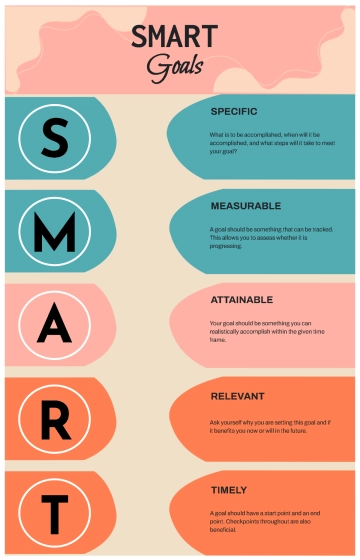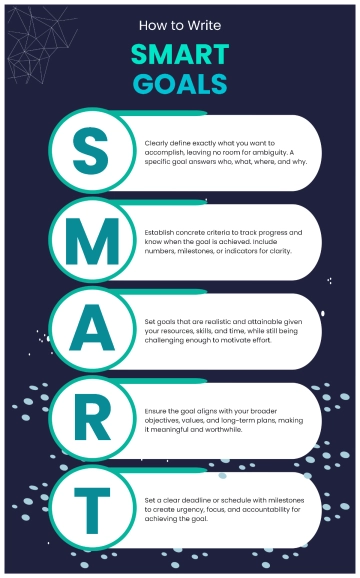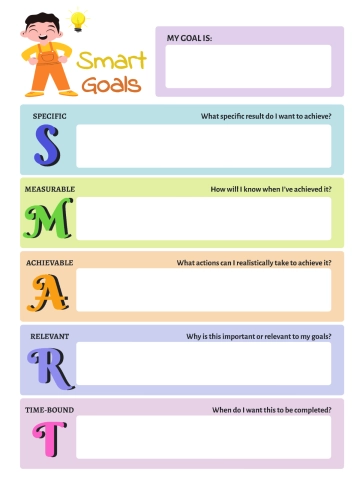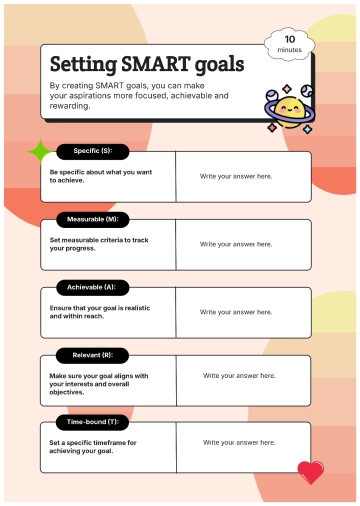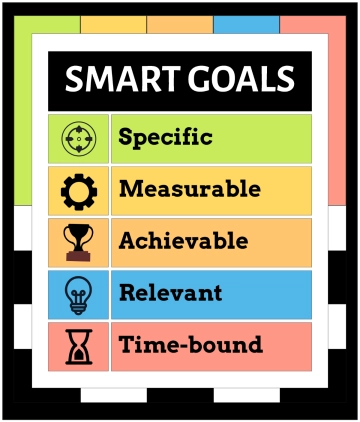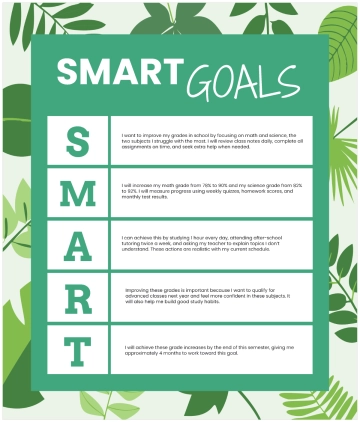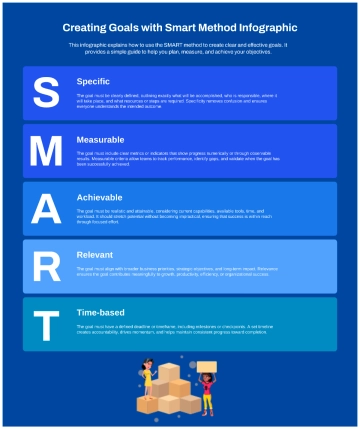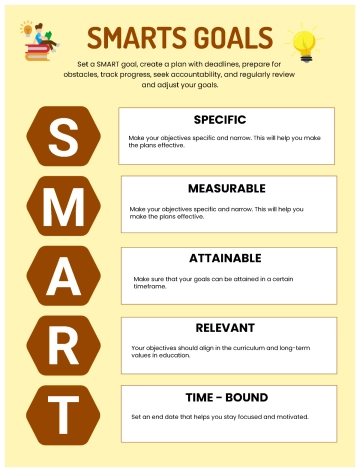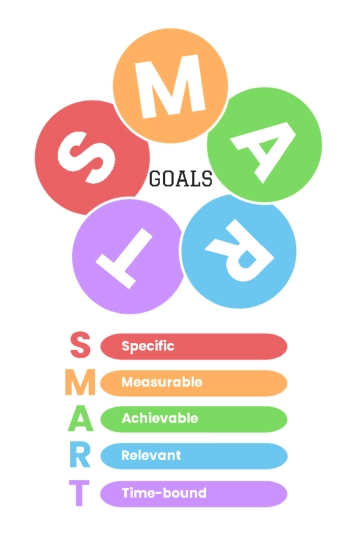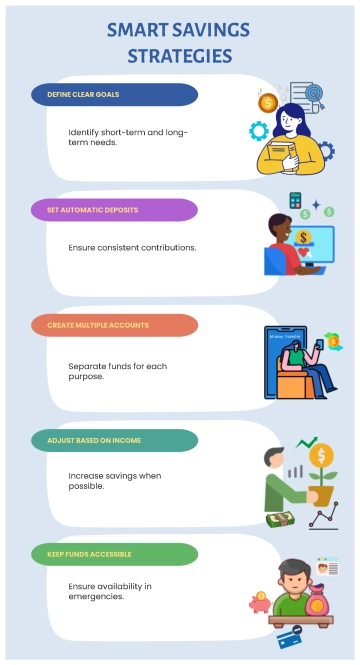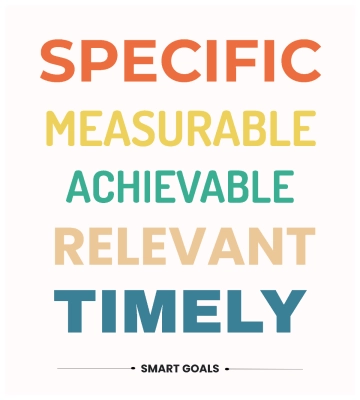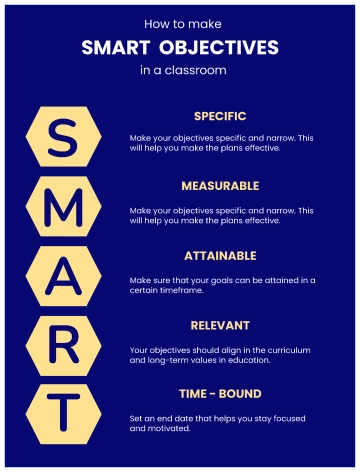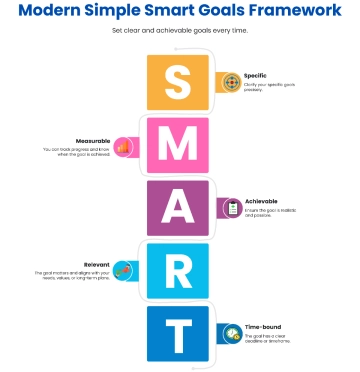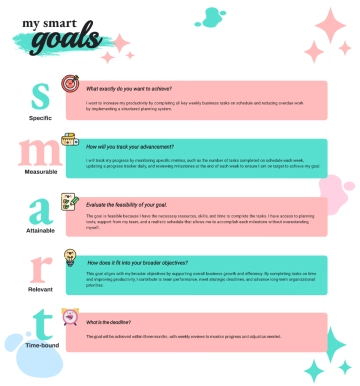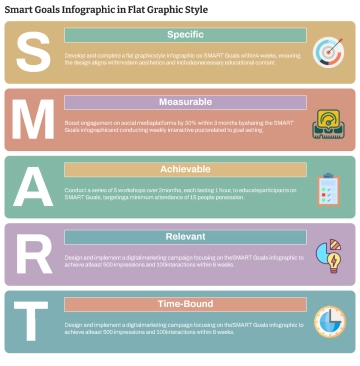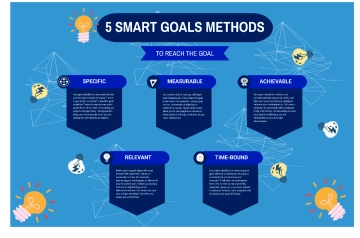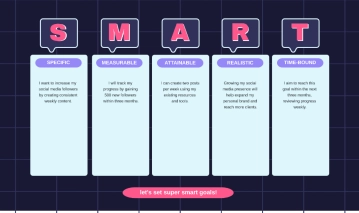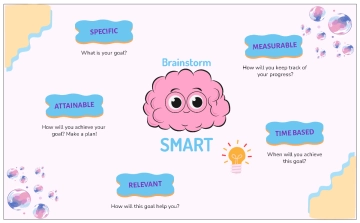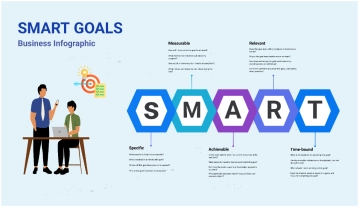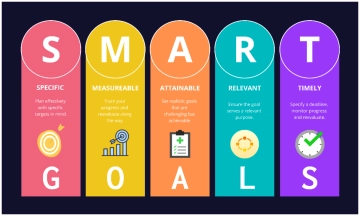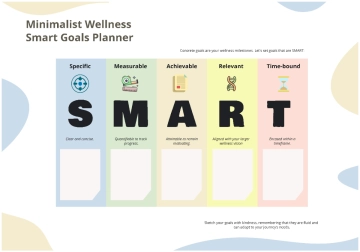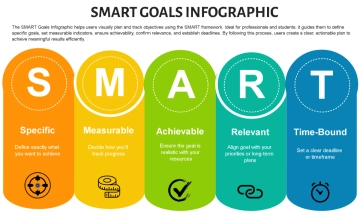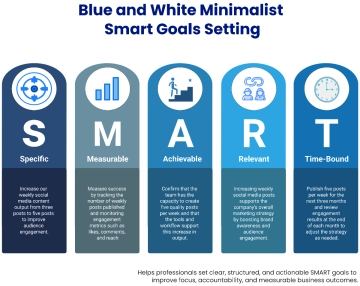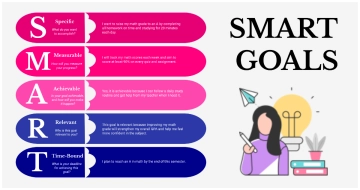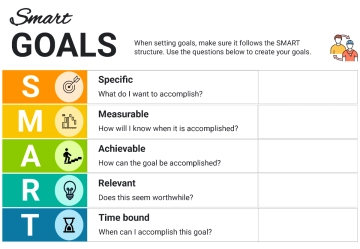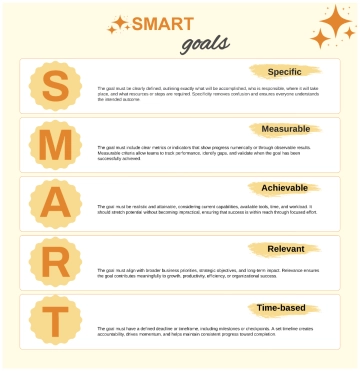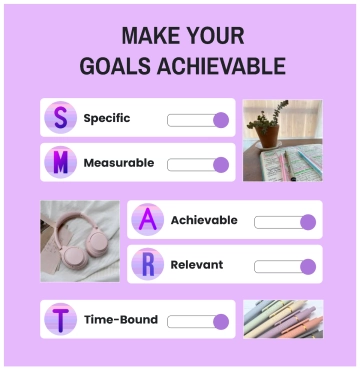Free SMART Goals for Academic Achievement

Prepared by: [YOUR NAME]
Setting up goals using the SMART criteria guarantees that the academic objectives you aim to accomplish are characterized by five important qualities: specific, measurable, achievable, relevant, and time-bound. This comprehensive approach significantly aids in both the meticulous monitoring of progress and the successful achievement of academic goals.
SMART Criteria
SMART | Description |
|---|---|
Specific | Identify a clear and concise academic objective, such as achieving a certain grade in a specific course or mastering a particular skill. For instance, "Improve my grade in Chemistry from a C to a B+." |
Measurable | Set quantifiable criteria to track progress, like aiming for a 90% average on all assignments or completing a set number of study hours per week. Example: "Complete 3 study sessions per week and achieve at least 85% on monthly quizzes." |
Achievable | Ensure the goal is realistic given available resources and time. For example, improving a grade by one letter per term, with access to tutoring if needed. Example: "Attend weekly tutoring sessions and review course material daily to raise my grade." |
Relevant | Align the goal with broader academic or career aspirations, such as passing a required course for a degree or gaining a certification that boosts employability. Example: "Achieve a B+ in Chemistry to meet the prerequisites for the Advanced Biology course." |
Time-bound | Set a clear deadline or time frame for achieving the goal, like completing a study module by the end of the semester or finishing a project by its due date. Example: "Complete the Chemistry course with a B+ by the end of the current semester." |
Action Plan
Identify Key Objectives: Determine the specific academic goals and criteria for success.
Develop a Study Schedule: Create a detailed plan for study sessions, tutoring appointments, and other academic activities.
Track Progress: Use tools like progress reports or academic tracking apps to monitor performance against set goals.
Adjust Strategies: Evaluate progress regularly and adjust the action plan as needed to stay on track.
Accountability
Self-Monitoring: Regularly review your progress and adjust your strategies to meet your goals.
Peer Support: Engage with study groups or academic partners who can provide encouragement and feedback.
Instructor Feedback: Seek feedback from your instructors to understand areas for improvement and gain insights on how to achieve your goals.
Parental or Mentor Oversight: If applicable, involve a mentor or family member to support and hold you accountable for reaching your academic targets.
Notes
Resources: List any resources such as textbooks, online materials, or tutoring services that will aid in achieving the goals.
Challenges: Identify potential challenges or obstacles that may arise and develop strategies to overcome them.
Milestones: Define key milestones to celebrate progress and maintain motivation throughout the process.
Review Dates: Set specific dates for periodic reviews of progress to ensure goals are being met and to make necessary adjustments.
- 100% Customizable, free editor
- Access 1 Million+ Templates, photo’s & graphics
- Download or share as a template
- Click and replace photos, graphics, text, backgrounds
- Resize, crop, AI write & more
- Access advanced editor
Enhance academic performance with the SMART Goals for Academic Achievement Template from Template.net. Tailored for students, educators, and institutions, this customizable template helps you set specific, measurable, and attainable academic goals. Fully editable in our Ai Editor Tool, it ensures a systematic approach to tracking progress and achieving excellence in education.
